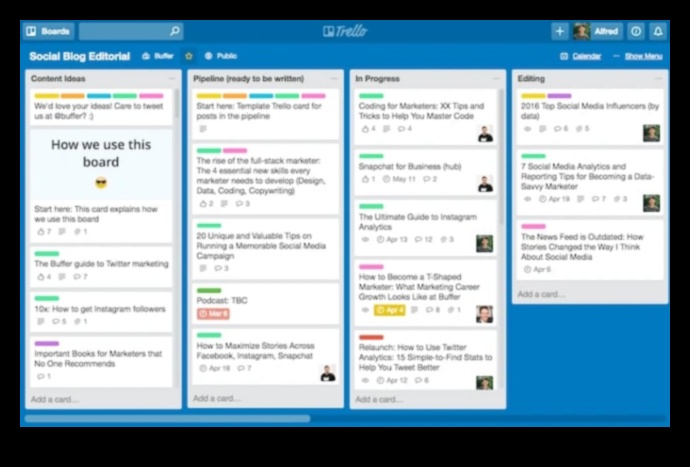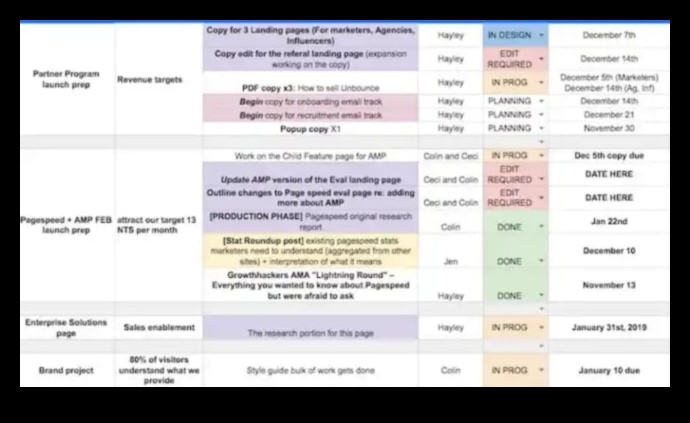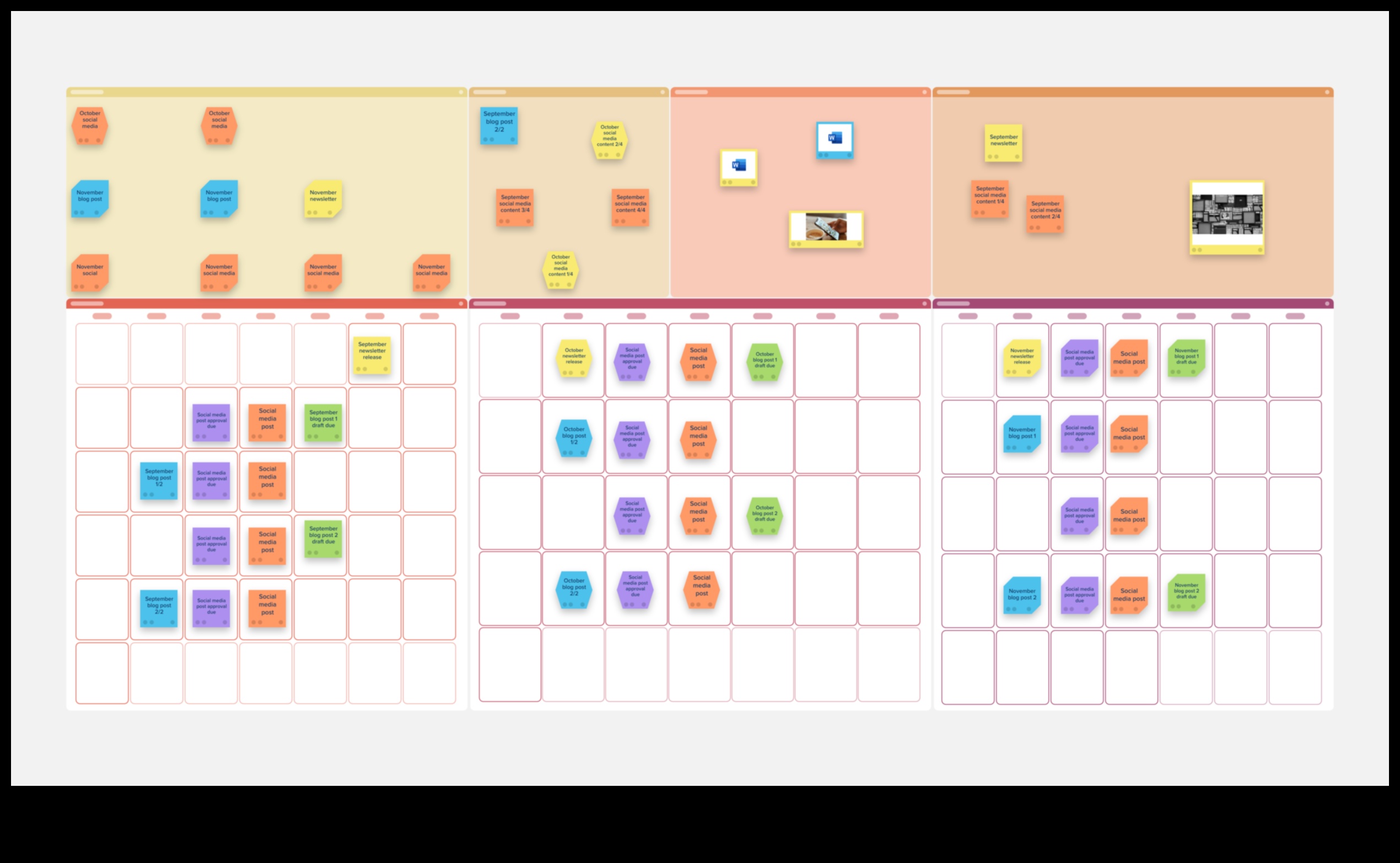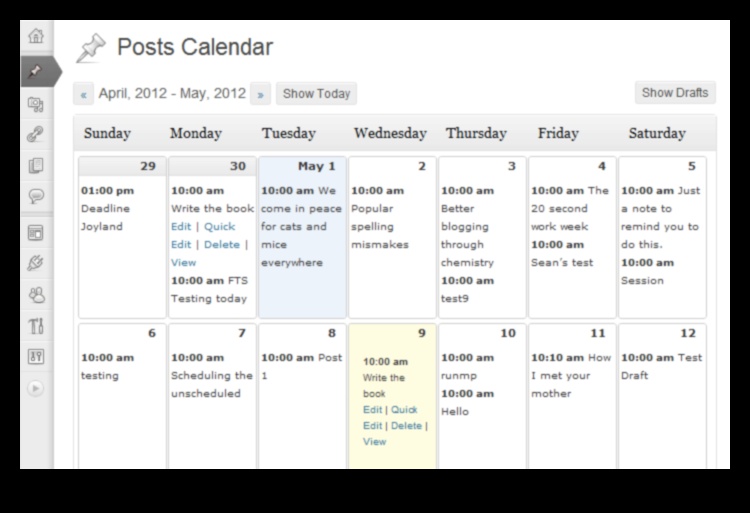
How to make an editorial calendar
The search intent of this keyword is informational. People who search for this keyword are looking for information on how to create an editorial calendar. They may be new to the concept of an editorial calendar or they may be looking for tips on how to improve their existing calendar.
The goal of an editorial calendar is to create a plan for publishing content on a regular basis. This can help businesses to stay on top of their content marketing goals and to ensure that they are consistently publishing high-quality content.
An editorial calendar can be used to track the following information:
- The topics of the articles that will be published
- The dates on which the articles will be published
- The authors who will be writing the articles
- The platforms on which the articles will be published
An editorial calendar can be created in a variety of different ways. Some people prefer to use a spreadsheet, while others prefer to use a dedicated editorial calendar tool.
No matter which method you choose, an editorial calendar can be a valuable tool for helping you to stay organized and to publish high-quality content on a regular basis.
| Topic | Features |
|---|---|
| Editorial calendar |
|
| Content calendar |
|
| Content planning |
|
| Publishing schedule |
|
| Social media calendar |
|

II. Topic Research
Topic research is the process of identifying and researching topics that are relevant to your audience and that you are passionate about writing about. This is an important first step in the content creation process, as it will help you to create content that is both interesting and informative for your readers.
There are a number of different ways to conduct topic research. Some of the most common methods include:
Keyword research: Keyword research can help you to identify topics that are popular with your target audience. You can use a keyword research tool to find out how many people are searching for different keywords, as well as the average search volume for each keyword.
Content analysis: Content analysis can help you to identify topics that are already being covered by your competitors. This can give you ideas for new topics to write about, as well as insights into how to write your content in a way that is more likely to rank well in search engines.
Personal interests: Don’t forget to consider your own personal interests when conducting topic research. If you’re passionate about a topic, you’re more likely to write engaging and informative content about it.
III. Keyword Research
Keyword research is an important part of the content creation process. It helps you to identify the topics that your target audience is interested in and to create content that is relevant to their needs.
There are a number of different ways to conduct keyword research. You can use a keyword research tool, such as Google Keyword Planner or SEMrush, to find out how many people are searching for a particular keyword each month. You can also use a content analysis tool, such as BuzzSumo or Ahrefs, to see which topics are popular on social media and other websites.
Once you have identified a few keywords that you want to target, you can use them to create your editorial calendar. You can create a separate editorial calendar for each keyword or you can combine them all into one calendar.
When creating your editorial calendar, it is important to keep the following things in mind:
- The search volume for each keyword
- The competition for each keyword
- The relevance of each keyword to your business
- The length of time it will take to create content for each keyword
By following these tips, you can create an editorial calendar that will help you to reach your target audience and achieve your content marketing goals.

How to make an editorial calendar
The search intent of this keyword is informational. People who search for this keyword are looking for information on how to create an editorial calendar. They may be new to the concept of an editorial calendar or they may be looking for tips on how to improve their existing calendar.
The goal of an editorial calendar is to create a plan for publishing content on a regular basis. This can help businesses to stay on top of their content marketing goals and to ensure that they are consistently publishing high-quality content.
An editorial calendar can be used to track the following information:
- The topics of the articles that will be published
- The dates on which the articles will be published
- The authors who will be writing the articles
- The platforms on which the articles will be published
An editorial calendar can be created in a variety of different ways. Some people prefer to use a spreadsheet, while others prefer to use a dedicated editorial calendar tool.
No matter which method you choose, an editorial calendar can be a valuable tool for helping you to stay organized and to publish high-quality content on a regular basis.

How to make an editorial calendar
The search intent of this keyword is informational. People who search for this keyword are looking for information on how to create an editorial calendar. They may be new to the concept of an editorial calendar or they may be looking for tips on how to improve their existing calendar.
The goal of an editorial calendar is to create a plan for publishing content on a regular basis. This can help businesses to stay on top of their content marketing goals and to ensure that they are consistently publishing high-quality content.
An editorial calendar can be used to track the following information:
- The topics of the articles that will be published
- The dates on which the articles will be published
- The authors who will be writing the articles
- The platforms on which the articles will be published
An editorial calendar can be created in a variety of different ways. Some people prefer to use a spreadsheet, while others prefer to use a dedicated editorial calendar tool.
No matter which method you choose, an editorial calendar can be a valuable tool for helping you to stay organized and to publish high-quality content on a regular basis.

How to make an editorial calendar
The search intent of this keyword is informational. People who search for this keyword are looking for information on how to create an editorial calendar. They may be new to the concept of an editorial calendar or they may be looking for tips on how to improve their existing calendar.
The goal of an editorial calendar is to create a plan for publishing content on a regular basis. This can help businesses to stay on top of their content marketing goals and to ensure that they are consistently publishing high-quality content.
An editorial calendar can be used to track the following information:
- The topics of the articles that will be published
- The dates on which the articles will be published
- The authors who will be writing the articles
- The platforms on which the articles will be published
An editorial calendar can be created in a variety of different ways. Some people prefer to use a spreadsheet, while others prefer to use a dedicated editorial calendar tool.
No matter which method you choose, an editorial calendar can be a valuable tool for helping you to stay organized and to publish high-quality content on a regular basis.
VII. Iteration
Iteration is the process of continuously improving your content marketing strategy. This means making changes to your content, your promotion, and your analytics based on the data you collect.
By iterating on your strategy, you can ensure that you are always providing your audience with the best possible content and that you are reaching them in the most effective way.
Here are some tips for iterating on your content marketing strategy:
- Regularly review your analytics to see what content is performing well and what content is not.
- Ask your audience for feedback on your content.
- Experiment with different types of content, promotion methods, and analytics tools.
By iterating on your strategy, you can continuously improve your results and achieve your content marketing goals.
SEO Best Practices
The following are some SEO best practices that you can follow to improve the ranking of your content:
- Use keyword-rich titles and descriptions
- Create high-quality content that is relevant to your target audience
- Optimize your images for SEO
- Build backlinks to your content
- Use social media to promote your content
For more information on SEO best practices, you can read our comprehensive guide to SEO.
Technical SEO refers to the behind-the-scenes factors that affect a website’s performance in search engines. These factors include things like the website’s code, its loading speed, and its mobile-friendliness.
Optimizing your website for technical SEO can help you to improve your search engine rankings and reach a wider audience. Here are some tips for improving your website’s technical SEO:
- Make sure your website is mobile-friendly.
- Optimize your website’s loading speed.
- Use structured data markup.
- Create high-quality content.
- Submit your website to search engines.
For more information on technical SEO, you can check out the following resources:
FAQ
Q: What is an editorial calendar?
A: An editorial calendar is a tool that helps you to plan and organize your content marketing efforts. It can be used to track the topics of the articles that will be published, the dates on which they will be published, the authors who will be writing them, and the platforms on which they will be published.
Q: Why do I need an editorial calendar?
A: An editorial calendar can help you to stay organized and to ensure that you are consistently publishing high-quality content. It can also help you to track your progress and to measure the results of your content marketing efforts.
Q: How do I create an editorial calendar?
There are a variety of different ways to create an editorial calendar. Some people prefer to use a spreadsheet, while others prefer to use a dedicated editorial calendar tool. Once you have chosen a method, you can start by brainstorming ideas for topics that you would like to cover. You can then create a schedule for when each article will be published.